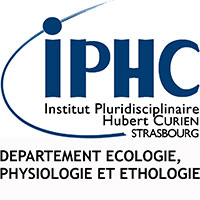Food selection and habitat use patterns of immature green turtles (Chelonia mydas) on Caribbean seagrass beds dominated by the alien species Halophila stipulacea
Résumé
Marine herbivores face rapid changes in the coastal ecosystems where they forage. In the Caribbean, the recent and fast expansion of the invasive phanerogam species Halophila stipulacea is threatening native seagrass ecosystems. So far, H. stipulacea is escaping most Caribbean herbivores, certainly because of its recent introduction or lower nutritional value. We investigated the impact of H. stipulacea invasion on fine-scale foraging habitat selection and food resource selection of immature green turtles at critical foraging sites in Les Anses d′Arlet, Martinique. The analysis of seagrass distribution and nutritional content, together with turtle behaviour and resource selection, showed that H. stipulacea may be of contrasting interest to green turtles. Compositional analysis confirmed the lower nutritional value of H. stipulacea compared to the native species, but the invasive species showed higher digestibility than native ones, which calls into question the energetic advantage of consuming the native plants over the exotic plant. Thus, although green turtles mostly selected the native seagrass Thalassia testudinum in multispecies seagrass beds, some individuals fed on H. stipulacea. Accordingly, in bays entirely invaded by H. stipulacea, one possibility for resident green turtles is to increase foraging on this species, but, if so, the consequences on their growth and survival still remain to be determined. As the expansion of H. stipulacea may have been facilitated by factors such as shipping, anchor scarring and fishing activities, protection of native seagrass beds and immature green turtles from human disturbances is urgently required to ensure the long-term adaptation of green turtles to this new foraging environment.
Fichier principal
 2022_Siegwalt_Global Ecology and Conservation.pdf (5.71 Mo)
Télécharger le fichier
2022_Siegwalt_Global Ecology and Conservation.pdf (5.71 Mo)
Télécharger le fichier
| Origine | Fichiers éditeurs autorisés sur une archive ouverte |
|---|---|
| licence |





